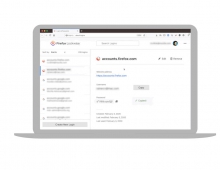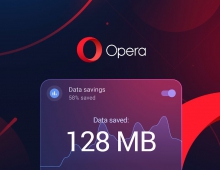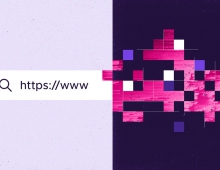
Microsoft Launches Browser Security Evaluation Website
Microsoft today launched a website that cranks out security scores for the various editions of its own Internet Explorer as well as browsers built by rivals Google and Mozilla.
The company today launched the YourBrowserMatters.org website to help protect users from the dangers of using an out of date browser.
According to the latest Microsoft Security Intelligence Report Volume 11, which analyzes data from over 600 million systems in more than 100 countries, the biggest threats stem from clever "socially engineered" malware targeting outdated software, such as older Web browsers.
This last point is particularly concerning because data from Net Applications shows that about a quarter of all PCs connecting to the Web are using an outdated version of their browser. With that in mind, Microsoft partnered with the Anti-Phishing League, Identity Theft Council, and Online Trust Alliance to raise awareness of the critical role browsers play in online security and make it as easy as possible for people to protect themselves.
"YourBrowserMatters.org is a resource for anyone who wants to improve their online security and increase their protection from socially engineered malware threats like phishing attacks," said Roger Capriotti, Microsoft's chief IE marketing executive, in a Tuesday blog.
Scores range on a scale of 0 to 4, and they are calculated using data from the Security Intelligence Report as well as what experts such as the Anti-Phishing League, Identity Theft Council, and Online Trust Alliance believe to be the most important aspects of browser security. This means browsers that provide better protection against the most common threats - such as socially engineered malware - will receive a higher score.
Not surprisingly, Internet Explorer 9 (IE9) comes out on top with a perfect score of 4 out of 4. The older IE8 garnered a 3.
Google's Chrome 14 kicked back a second-place score of 2.5 out of 4.
Mozilla's Firefox 7, generated a ranking of just 2.
Opera and Apple's Safari -- the two remaining browsers of the top five -- weren't even competitive enough in Microsoft's eyes to warrant a score. Both simply displayed the message "We can't give you a score for your browser."
Capriotti in his blog anticipated disagreement about the test. "Security scores like this are often the subject of much scrutiny, and there is certainly no single test that can perfectly summarize all aspects of browser security," said Capriotti.
According to the latest Microsoft Security Intelligence Report Volume 11, which analyzes data from over 600 million systems in more than 100 countries, the biggest threats stem from clever "socially engineered" malware targeting outdated software, such as older Web browsers.
This last point is particularly concerning because data from Net Applications shows that about a quarter of all PCs connecting to the Web are using an outdated version of their browser. With that in mind, Microsoft partnered with the Anti-Phishing League, Identity Theft Council, and Online Trust Alliance to raise awareness of the critical role browsers play in online security and make it as easy as possible for people to protect themselves.
"YourBrowserMatters.org is a resource for anyone who wants to improve their online security and increase their protection from socially engineered malware threats like phishing attacks," said Roger Capriotti, Microsoft's chief IE marketing executive, in a Tuesday blog.
Scores range on a scale of 0 to 4, and they are calculated using data from the Security Intelligence Report as well as what experts such as the Anti-Phishing League, Identity Theft Council, and Online Trust Alliance believe to be the most important aspects of browser security. This means browsers that provide better protection against the most common threats - such as socially engineered malware - will receive a higher score.
Not surprisingly, Internet Explorer 9 (IE9) comes out on top with a perfect score of 4 out of 4. The older IE8 garnered a 3.
Google's Chrome 14 kicked back a second-place score of 2.5 out of 4.
Mozilla's Firefox 7, generated a ranking of just 2.
Opera and Apple's Safari -- the two remaining browsers of the top five -- weren't even competitive enough in Microsoft's eyes to warrant a score. Both simply displayed the message "We can't give you a score for your browser."
Capriotti in his blog anticipated disagreement about the test. "Security scores like this are often the subject of much scrutiny, and there is certainly no single test that can perfectly summarize all aspects of browser security," said Capriotti.





















